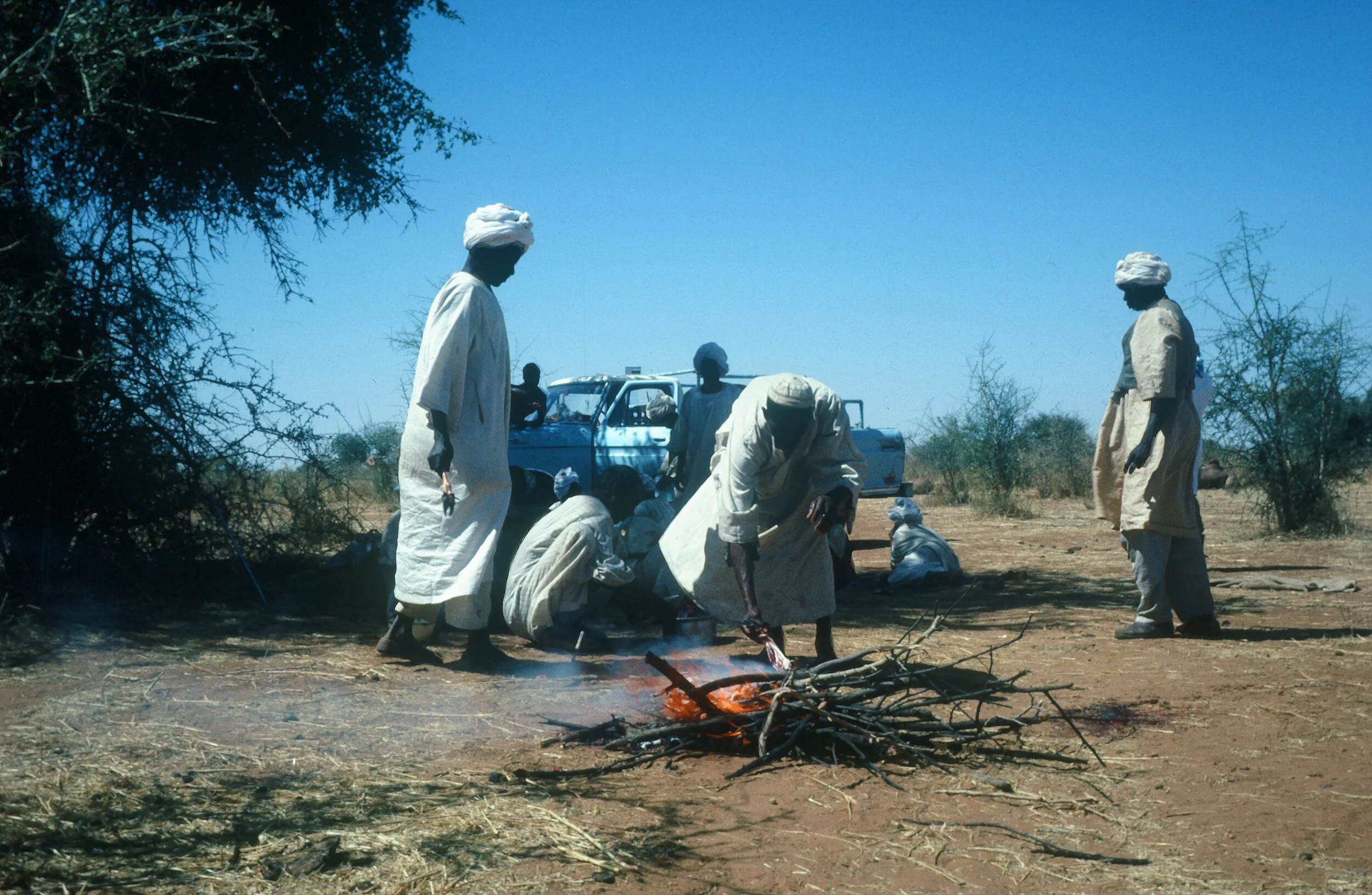At 6am I’m off for Tanta a large city in the Delta forty five minutes by train, the saint’s festival, Moulid of Sayyid Ahmad al-Badawi is celebrated this week, the biggest religious celebration in Egypt and legendary for the amount of hashish smoked in its frenzied festivities, dervish mystics dance til they drop and Grand Shaikhs puff themselves more than usual to recite the Quran in one breath.
-Letter Home, October 14, 1978
According to McPherson’s Moulids of Egypt, …I am assured that the crowds amount to more than a million…Tanta’s mosque precinct has many public circumcision booths but no secular attractions unless tattooing be so regarded. But if one follows the multitudes to the outskirts one reaches a perfect city of tents, theaters and improvised dwellings through which one can wander for hours. Several years ago (1938) at dawn from my hotel window on the square I saw a peculiar sight, a sort of harmless burlesque, the Zeffa al-Sharameet, Procession of the Prostitutes, with their admirers and much music, song, and mixed dances of a pronounced character, and other unseemly things.
About fifteen years after my first visit to the Tanta moulid I had occasion to return as part of my evaluation of a USAID-funded Family Planning Project, to inspect the booth erected by the Ministry of Health to promote contraceptive use. Needless to say that this most boring booth was empty, except for the children racing in to grab free handouts which they blew into balloons to have more fun at the fair.












